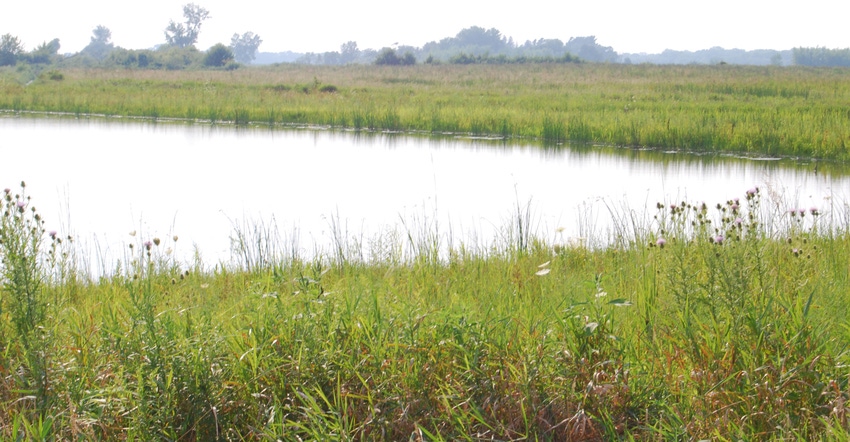January 14, 2019

The Iowa Learning Farms program, a statewide educational effort aimed at helping farmers and landowners take better care of Iowa’s soil and water resources, is celebrating its 15th anniversary this year. ILF will begin the year by hosting a webinar at 12:30 p.m. Jan. 16 featuring Iowa Secretary of Agriculture Mike Naig.
Jacqueline Comito, ILF program director, will talk with Naig about conservation, water quality and the secretary’s vision for Iowa. They will also discuss the Iowa Nutrient Reduction Strategy and how Iowans are working to meet the nitrogen and phosphorus loss reduction goals outlined in the strategy. Webinar viewers will be able to submit questions for Naig during the webinar through the Zoom Webinar software.
Webinar archived
To participate in the webinar, go to Iowa Learning Farms shortly before 12:30 p.m. Jan. 16 and choose to join the webinar. The webinar will also be recorded and archived on the ILF website for watching at any time and will be available as a Conservation Chat podcast for download and streaming.
The ILF statewide educational program strives to reach farmers and landowners regarding conservation issues. It is coordinated by Iowa State University Extension and has several other partners, including state agencies, which help fund ILF.
In a recent interview with Wallaces Farmer magazine, Naig said he is still focused first and foremost on the Iowa Nutrient Reduction Strategy. He emphasized that “we must protect our soil and water resources.”
Naig grew up on a farm near Cylinder in northwest Iowa and says soil and water conservation has always been an important issue to him.
Focus on goals
“Agriculture is very valuable to Iowa’s economy,” Naig said in the interview. “Agriculture is driven by our natural resources: soil and water. We have a long history of working to protect soil and water in this state. And we recently celebrated the fifth anniversary of the Iowa Nutrient Reduction Strategy. Iowa has made significant accomplishments in five years, toward reaching the goals outlined by the strategy. But this is also a time to rededicate ourselves to the work that is still needed to get us to where we need to go in the future, to protect these valuable, productive resources.”
Naig will continue to promote the use of cover crops. “We need several million more acres of cover crops planted in the state of Iowa,” he said. “Cover crops are an important part of the plan to protect and improve water quality in this state. Cover crops aren’t easy to manage; you must know what you are doing and have a plan. We will continue to help educate our farmers and landowners in Iowa regarding how to make cover crops work successfully on their farms.”
Naig said the use of precision agriculture needs to be expanded to help carry out the goals of the nutrient reduction strategy. “We need to look at our farms and ask, ‘What’s the best use of this land? Is it best used for row-crop production? Should it be seeded down to a forage crop instead? Should it be a man-made wetland?
“We have in-the-field practices and edge-of-field practices that need to be more widely used. Such as wetlands, bioreactors, saturated buffers and more. Precision agriculture with mapping and using GPS are technology tools that can help us become better at targeting and using the right practices for the characteristics of fields and parts of fields that have unique conservation needs.”
Source: ILF, which is solely responsible for the information provided and is wholly owned by the source. Informa Business Media and all its subsidiaries are not responsible for any of the content contained in this information asset.
You May Also Like




